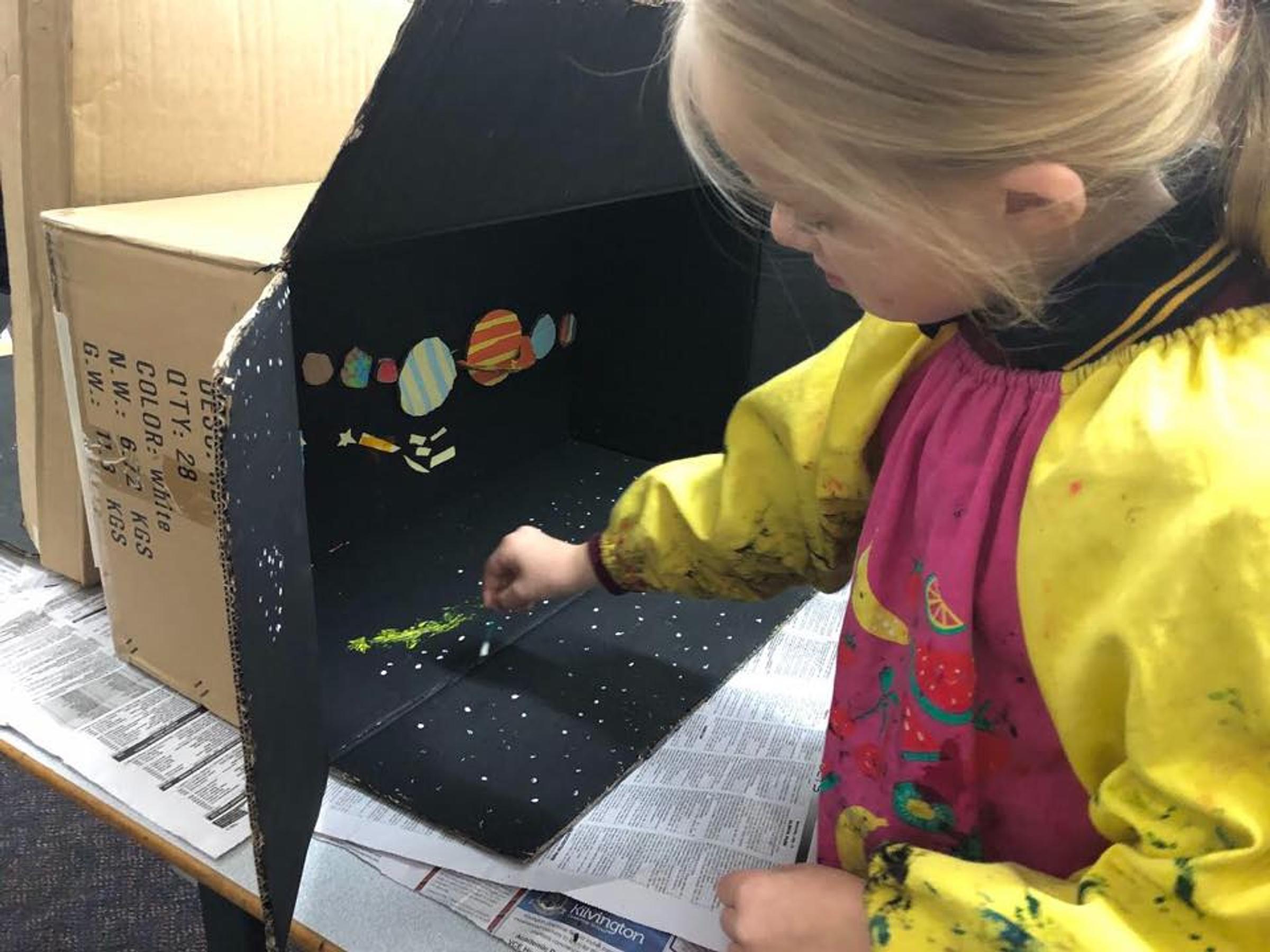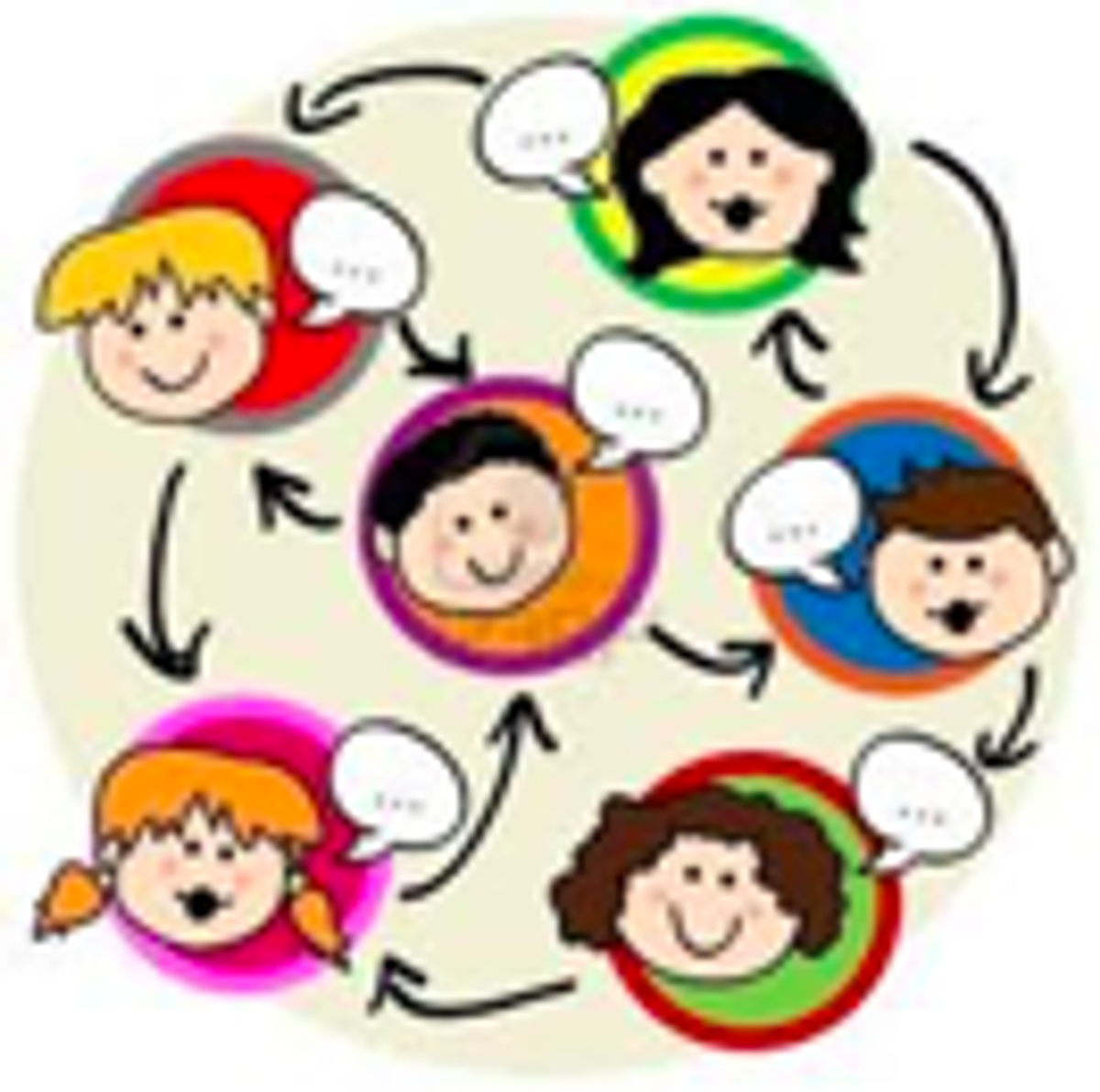F-4 Community News

Children's Chatter Matters
To best prepare our children for the language and learning demands of the school environment, they need ample time and opportunity to engage in meaningful interactions with their family.
Research suggests that the types of questions we ask and the quality of discussions we have with our children (at any age) are linked to school success. As children progress through the grades they must learn to use extended discourse in telling stories, giving explanations, reporting, expressing an opinion or writing an essay. Asking children “if, why and how” type questions allows them to deepen their thinking and prepare longer and more complex responses. It makes sense to build their confidence with extended discourse gradually, beginning with simple oral tasks.
Our school’s Speech Pathologist has provided many 'family friendly', fun oral language tasks aimed to enhance learning and literacy skills. You’ll find these in our fortnightly newsletters so look out for them!
We encourage you to set some time aside each week so that you can get the most out of your interactions with your child. In a busy household, sometimes the car is the best place for these focused activities. The key ingredients for a creative interaction are a time, a place, a willing talking partner or audience and an engaging topic or activity.
If your child is reading a particular book at home or in class, try to incorporate words or ideas from that text into your activity. For example; if you are building your child’s use of describing words, select a character from your child’s reader to describe. Encourage increasingly expensive words such as the beautiful, gorgeous, stunning and breath-taking princess.
Positive communication experiences at home help children feel accepted and valued. Growth in spoken language skills will build children’s self-confidence and help them learn to negotiate social interactions at school. This often transfers to other aspects of their learning and life.
Ten activities will be provided each term focusing on key areas of oral language supporting literacy, learning and socialising. Feel free to adjust these activities according to your child’s year level.
The following link is to the most comprehensive website available that provides parents with activities that are free, easily accessible and enjoyable. Each activity has been carefully selected to reflect the highest quality, up-to-date research evidence on early literacy development. There is also advice for parents who are concerned about their child’s reading and language development.
http://www.fivefromfive.org.au/parent-resources/
If you have any questions you can contact the Speech Pathologist through Selga Langley at school .
Good luck and most importantly, enjoy this very special time with your child.
Term 3: Pragmatics and Social skills - (From Vic Curriculum Personal & Social Capabilities)
- Developing resilience; Self-awareness: Identifying personal strengths and skill sets, their likes and dislikes, needs and wants.
- Identifying strengths and skills in others, acknowledging, giving praise.
- Emotions – identify these and how they impact on others
Extend their vocabulary through which to recognise and describe emotions and when, how and with whom it is appropriate to share emotions
- Conflict resolution
- Working effectively in a team
- Describe the characteristics of respectful relationships and suggest ways that respectful relationships can be achieved. Look at diversity in gender, sex, culture etc.
- Strategies for coping with difficult situations. They persist with tasks when faced with challenges and adapt their approach when first attempts are not successful.
- Students recognise and appreciate the uniqueness of all people. They are able to explain how individual, social and cultural differences may increase vulnerability to stereotypes.
- Describe ways of making and keeping friends, including how actions and words can help or hurt others, and the effects of modifying their behaviour
Activity 3 focus: Conflict resolution
Conflict can arise for any number of reasons. As adults we can model and guide our children to solve conflicts in the most effective way possible. Don’t forget, not all conflicts can be resolved and we simply need to just agree to disagree. However it is important to agree/disagree in a respectful manner.
Here are some comments you might like to promote around your house when not everybody is on the same page.
Agree: “ I think that’s a great idea, let’s go with it!”
Disagree: “I can see what you’re saying, but I think this because…”
“That’s a good idea but how about …..?”
“I can sort of see your point of view, but we’re going to have to agree to disagree”
Have these phrases written and placed around the house for reminders
Here’s some conflict resolution topics you might like to discuss as a family (remember no put-downs);
- dogs are better than cats
- children should make their beds everyday
- children should go to bed by 8 o’clock
- children should only have one hour of tv each night
- Collingwood is the best football team
Don’t forget to praise your child/children when you hear them agree/disagree in a respectful manner.
Activity 4 focus: Developing resilience
Many children have difficulty adapting to changes or difficult situations that arise throughout life. For example: Starting a new school, making new friends, completing homework on time etc. Providing children with the tools to succeed during these situations will not only build resilience, but may prevent those awful melt-downs.
- Providing Visual schedules and timetables for your child will let them know ahead of time what’s happening and what is expected of them. They relieve the child’s anxiety as surprises or changes can be timetabled in.
The following link outlines the benefits of visual schedules and provides excellent examples.
https://ahrc.eq.edu.au/services/fba-tool/help/visual-schedule)
- Social stories also helps the child to go through the steps involved in order to complete a task successfully. Go to this link for good examples of social stories and how to use them to guide your child’s behaviour and/or social skills.
https://www.education.vic.gov.au/school/teachers/learningneeds/Pages/supportmaterials.aspx#link35
Books that focus on resilience in children include ‘Oh the places you’ll go’ by Dr. Seuss and ‘The little engine that could’ by Watty Piper

